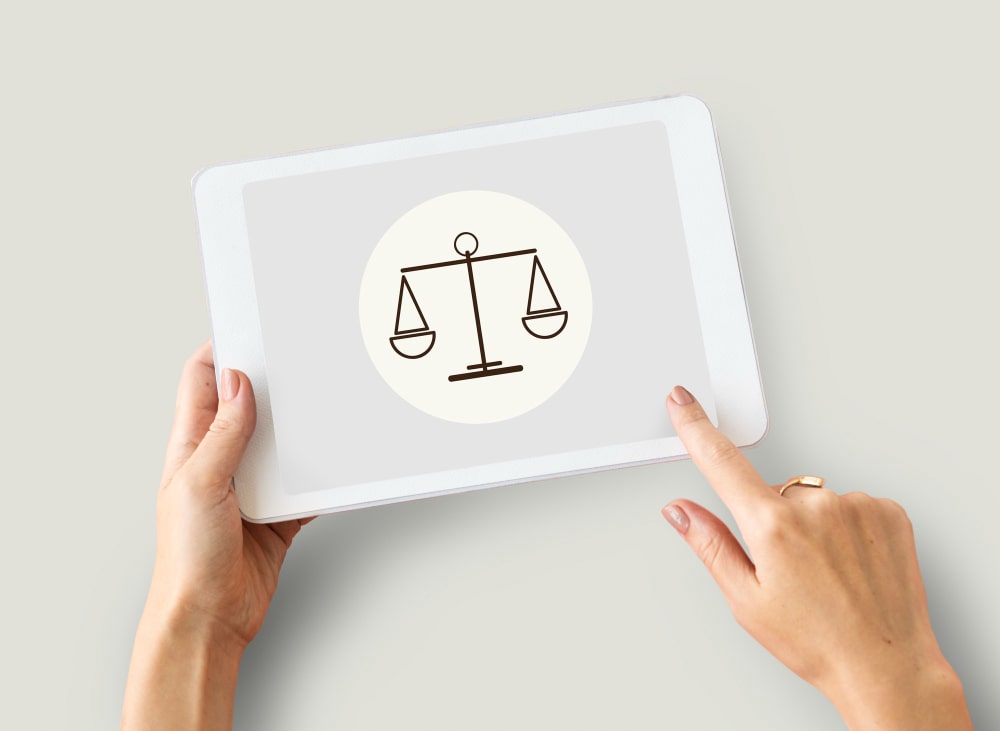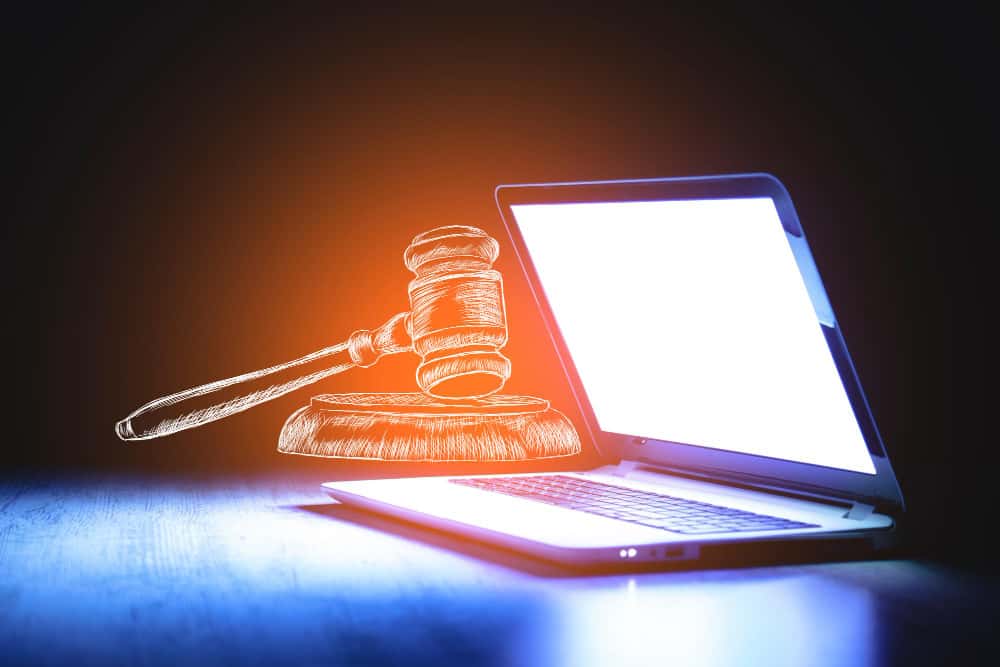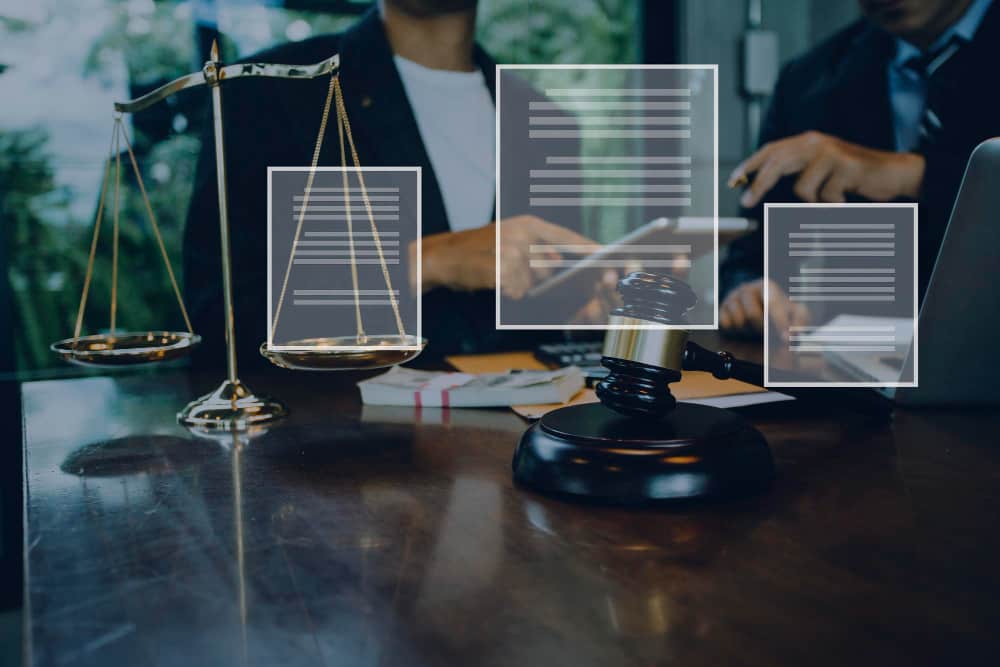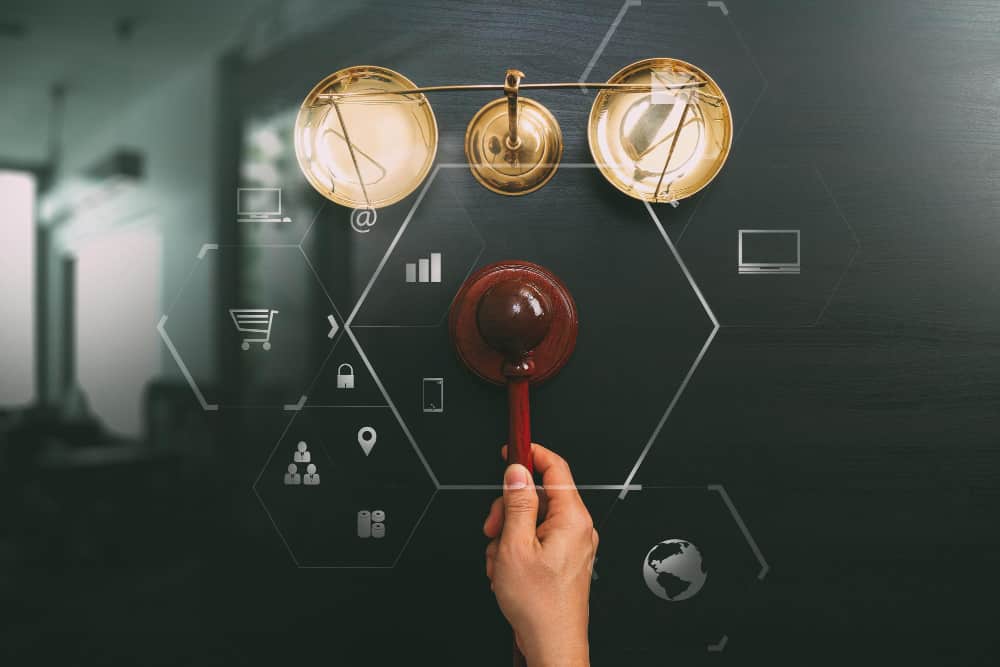“I have been trying to find a suitable lawyer to handle my case related to a family dispute. Earlier, I was able to find a lawyer but his approach and ways to handle the case weren’t transparent. Whenever I tried to ask doubts regarding the case, he didn’t address them properly. Eventually, I came to know that the lawyer was asking for higher fees than it should be, which developed a distrust while choosing a lawyer. Is there a way to choose and communicate with a lawyer before handing them my case?”
Introduction
Over time, the legal industry has seen significant change due to the use of legal technology. Technological innovation can certainly change how we use legal practice in our daily lives. It brings a new side to the Legal Industry and benefits the legal professional in many ways.
However, it raises a question: is it only technologies that initiate the changes, or do we play a role by using technology to address the change? This article aims to answer this question.
But, before we move further into the topic, let’s see how technology and law are related.
Legal Technology: Definition and Importance

As the heading suggests, this article mainly deals with the nitty-gritty of legal technologies, but what is the term “legal technology”?
Legal Technologies, also called Legal Tech or Law tech, refers to the technologies that change the traditional law firm’s way of providing legal services to clients. In short, we can say that legal technology combines the legal sector and technologies that need to benefit law firms and companies with advanced and quick solutions to legal problems.
If we need to know more about legal technologies, it is pertinent to know what is the role of technology in the legal industry and how it is beneficial for the legal professional and the client.
Benefits of Technology in Law firm
Technological innovation is vital in the legal industry as sometimes law firms can be risky and time-consuming. The legal industry has always been slow to adopt new technology in solving cases or managing other important work. It’s only been a few years since legal technology companies started to use software technologies for legal work. Due to the COVID 19 pandemic, more companies have adopted legal tech solution, which has shown positive results such as:
Easy and quick research
Over time, lawyers have been acquainted with using the internet for research. However, they still somehow follow the traditional method of printing the revised laws and regulations and do the same thing every time a new law is enacted.
As we know, researching is time-consuming, but doing it in a way that a traditional law firm has been doing adds more time to complete the research work. In this case, using legal technologies for research makes the lawyers updated on every single piece of information, including recent ones. It doesn’t matter whether the same is available in hard copy. It will surely reduce the workload.
Proper management of resources
The role of paralegals or junior associates was previously limited to monotonous tasks such as documenting, gathering information, managing titles, and informing senior lawyers or general counsel about their daily work. This led to a lack of interest among junior lawyers who wanted to grow and learn in their early career stages.
Also, the general counsel couldn’t get to have benefited from the junior lawyer’s real potential, and this is where the legal tech market plays an important role. The legal title management performs all the work related to managing and processing titles, and the calendaring applications give the senior lawyers or general counsel an idea about the daily schedule of the junior lawyers.
Fewer Errors
One of the most important roles that technology plays in the legal profession is reducing errors. Technologies offer alternative solutions, such as access to all the relevant details. There can be a great deal of cost associated with errors, especially when the legal document has already been submitted to the court. Using artificial intelligence in the legal sector has the potential to reduce errors.
Time Management
Tech solutions have saved a lot of time, especially for those works which take long hours to be successful. However, with the improving legal industry with Artificial intelligence, analyzing large documents and legal research can be done in a few seconds. It depicts how technology is vital for the growth and development of the legal industry.
Increase in Transparency
Legal tech adoption has helped to bring transparency to the traditional methods of dealing with clients. We can’t say it is a traditional method because even today, legal practitioners charge more fees from their clients and are not upfront about problems with their cases. Also, most law proceedings take offline mode, making the clients doubtful towards their lawyers. However, with the development of the legal tech market, the situation has improved with transparent legal practices. These tech solutions create a marketplace where clients can easily find a suitable lawyer by chatting and connecting with them. This interaction helps the client to know the lawyer better and increases trust between the client and the lawyer.
Customer Satisfaction
As the above point suggests, the technological solutions in the legal sector have created a client-centric approach that is beneficial for both the lawyers and the clients. Clients are more satisfied with the advanced technologies to know their lawyers and understand their case proceedings without hindrance. The effect of time management has been seen in clients as technology makes court proceedings less time-consuming.
Types of Legal Technology

The classification of legal technology can be divided into three types:
- The Bucerius Law School and Boston Consulting Group,
- The Stanford Legal Code Database,
- Zoe Andrea, the CEO at Lecare, by differentiating the legal technology and tools according to the services they provide.
The Bucerius Law School and Boston Consulting Group classify Legal Technology into three categories:
- Enabler Technologies
- Support process solutions
- Substantive law technology
The Stanford Legal Code Database divides legal technology into 9 types:
- Marketplace
- Legal Research
- E-discovery
- Document Automation
- Legal Education
- Analytics
- Practice management
- Online Dispute Resolution
- Compliance
The third classification of legal technology can be divided into 4 parts:
Do-it-yourself services (Commoditized law solutions)
As the name suggests, you can make your draft through the help of document drafting platforms; such documents may include simple contracts, divorce documents, etc.
Online legal marketplaces
This legal innovation helps customers to meet their lawyers and helps to build effective communication between them. Examples of such technologies: are legal service and content portals, legal databases, fixed fee legal service technologies for customers, etc.
One such legal marketplace is LegaMart, where through the legaMart directory, you can find a range of lawyers on your smartphone and book any lawyer that suits your needs.
Tools for specific legal services
It includes contract review, assembling of automated documents, legal research analysis, contract management, etc.
Artificial intelligence technologies for legal services
The best example of this legal technology is ROSS, an Artificial intelligence software that helps millions of legal practitioners in the US work faster and more effectively. Improving the legal department with artificial intelligence has benefitted many legal practitioners by reducing their workload.
Examples of Legal Technology

There are many examples of legal technology, but the below-mentioned list of legal technologies provides the best results. Legal technologies can be divided into two parts: Technologies available to lawyers and clients.
Legal Professionals
Legal Research
One of the most challenging and essential work is to research law firms. Most lawyers search for previous cases or precedents to get help for the present case. However, it’s easier said than done as it takes a lot of time to find previous cases manually. Still, with the development of legal technologies tools such as lexis, fast case, cara-case text, etc., it has become easier to do legal research.
Contract management with e-signatures
These legal technologies help in analyzing and managing the performance of contracts.
Document review and creation
In law firms, creating a legal document and then reviewing it to ensure there are no mistakes is essential before submitting it before the court. The tools used for document creation and review help in drafting the document, assembling them, and reviewing them through artificial intelligence. Some popular document review tools are legartis, docjuris, casedo, etc.
Task management
This tool helps in managing meetings and prioritizing essential tasks and cases. The popular tools for task management are Smart Advocate, LawTool Box, etc.
Legal Clients

Legal Tech Marketplace
It is an online platform where businesses or any other clients demand suitable and talented lawyers to have their legal services for the cases such as business issues, compliance, or any legal issues. This digital transformation has benefitted legal clients to choose their lawyer without having any trust or transparency issues, as discussed above.
Legal Chatbots
Legal chatbots are the most interesting legal tech tool. If you want legal advice on matters that don’t require expert advice, then you can sit and chat with a remote lawyer about your legal problems. This tool allows you to talk with a robot lawyer and get answers to all your queries. Although you’ll feel like you’re speaking with a human lawyer, it’s a computer program. Legal chatbots are accessible by any smartphone and allow us to help people who need access to legal services. Examples of legal chatbots are Robot lawyers lisa, and Billy Bot.
Legal Documentation
Imagine you need to make a confidential agreement urgently, and you don’t have time to hire a professional lawyer for the same. In that case, you can easily access legal tech sites where you can make simple legal documents online anytime and anywhere. This legal tech helps to draft legal agreements and contracts in less time and cost. Some of the sites for legal documentation are LegalZoom, rocket lawyer, etc.
Legal Tech Market Size
While the legal technology sector witnessed a rise in patents in the past five years, the number increased even more in 2021 due to the COVID-19 pandemic, when the legal market opted for online methods and legal technologies to handle cases. However, if we talk about the legal tech market size, then it depends on two factors:
- Growth in compound annual growth rate (CAGR). In Simple words, a CAGR is the annual growth of your investments for a particular period.
- More law companies spend money on legal tech.
According to the statistics by Gartner, legal technology budgets will increase three times by 2025. In the case of the in-house counsel legal department, they will increase their expenditures on legal tech to reduce the dependency on outside lawyers. The three-fold increment can be seen because the recent COVID-19 pandemic has forced many companies and firms to use the benefits of legal innovation.
Conclusion
As we learned about the relation between technologies and the legal industry, we can now answer, “do technologies initiate change, or do we use technology to address it?”. Legal technologies can certainly initiate change in the legal field. Still, to make it happen, we need to address the technology and use it for the growth and development of the legal industry.
It is not possible if we don’t effectively use technology. As mentioned above, many legal technologies are available in the legal marketplace, but to make it a part of a firm or company, we need to make an effort. Therefore, we can say that, indeed, technologies initiate changes but to use the legal tools, we need to invest in high budgets for effective legal services.




